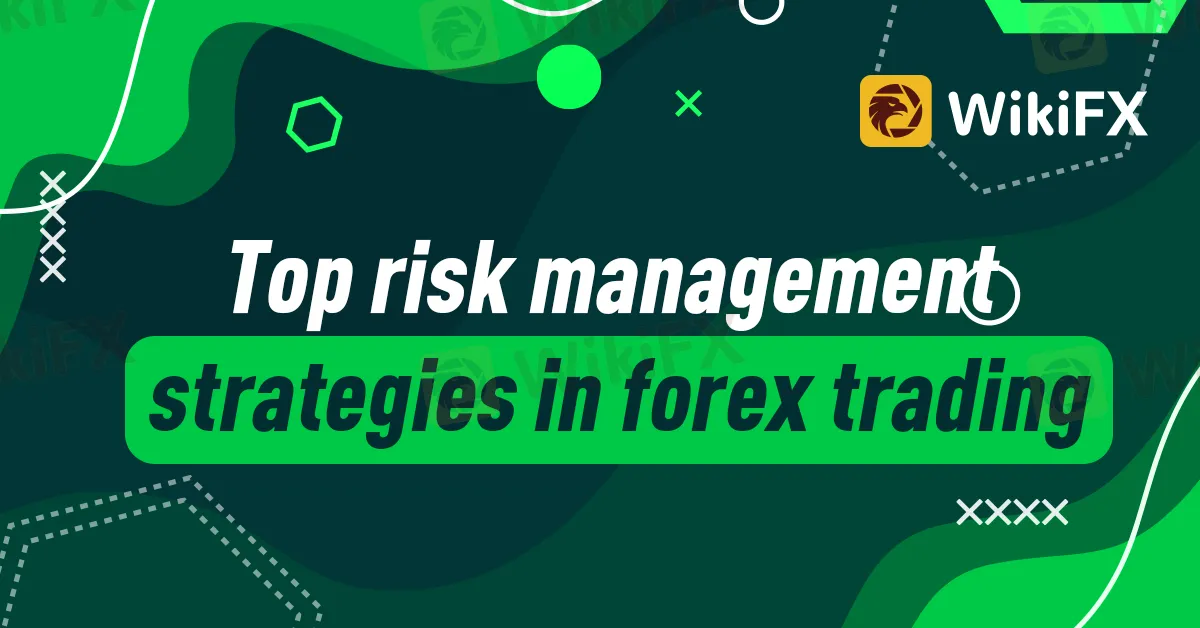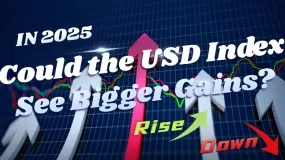简体中文
繁體中文
English
Pусский
日本語
ภาษาไทย
Tiếng Việt
Bahasa Indonesia
Español
हिन्दी
Filippiiniläinen
Français
Deutsch
Português
Türkçe
한국어
العربية
Top risk management strategies in forex trading
Abstract:Volatility within the FX market presents a range of opportunities for profit, but this also comes with added risk. Learn about the risks associated with forex trading, and find out how to manage them.

Volatility within the FX market presents a range of opportunities for profit, but this also comes with added risk. Learn about the risks associated with forex trading, and find out how to manage them.
The biggest risk in Forex is brokers scamming their clients. Everyday brokers scam their clients in a totally legal and obvious manner. WikiFX helps clients fight back and take back the power. WikiFX fishes the scammers out of the honest and trustworthy brokers. The app allows you to rate and review the brokers validity and customer reviews. Fight the scammers and download WikiFX today.
What is risk management in forex?
Through the use of a set of guidelines and safety precautions, you can handle any unfavorable effects of a forex trading. Since it's preferable to have a risk management plan in place before you actually start trading, an effective approach necessitates careful preparation from the beginning.
What are the dangers of trading forex?
When currency values fluctuate, there is a danger that the cost of purchasing foreign assets may increase or decrease.
Interest rate risk is the risk associated with an abrupt change in interest rates, which has an impact on volatility. FX prices are impacted by changes in interest rates because, depending on the direction of the shift, the amount of investment and expenditure will either rise or fall across an economy.
The danger of not being able to buy or sell an asset quickly enough to stop a loss is known as liquidity risk. Despite the fact that the foreign exchange market is quite liquid, there may still be times when it is less so, depending on the currency and the government's foreign exchange regulations.
When trading on margin, there is a danger of amplified losses known as leverage risk. Because the initial investment is less than the value of the FX deal, it is simple to overlook the amount of money you are risking.
How to control risk while trading currencies
Recognize the FX market
learn about leverage
Make a solid trading strategy.
Decide on a risk/reward ratio.
Use boundaries and stops
Control your feelings
Observe current affairs and news
Begin with a practice account.
Recognize the FX market
The currencies that make up the forex market are GBP, USD, JPY, AUD, CHF, and ZAR. Foreign exchange, or forex, is largely influenced by the dynamics of supply and demand.
Forex trading operates similarly to other exchanges in that you purchase an asset with a currency, and the market price indicates how much of one currency you must pay to purchase another.
The base currency is the first currency that appears in a forex pair quotation, while the quote currency is the second. The price shown on a chart is always the quote currency; it shows how much of the quote currency is required to buy one unit of the base currency. For instance, if the GBP/USD exchange rate is 1.25, that indicates that buying £1 would cost you $1.25.
The FX market is divided into three categories:
Spot market: A currency pair is physically exchanged at the precise moment the deal is finalized, or “on the spot.”
Forward market: a contract to purchase or sell a predetermined amount of a currency at a predetermined price, at a predetermined date in the future, or at any time in the future.
A contract to purchase or sell a specific quantity of a currency at a specific price and date in the future is known as a futures contract. A futures contract, in contrast to forwards, is legally binding.
Learn all there is to know about the foreign exchange market.
learn about leverage
You will be trading with leverage when you use CFDs to speculate on changes in the FX price. As a result, you may have complete market exposure with just a tiny initial margin investment.
Leveraged trading provides advantages, but there are also possible drawbacks, such as the risk for amplified losses.
Consider that you choose to trade the GBP/USD pair using CFDs. The pair is now trading at $1.22485, with buy and sell prices of $1.22490 and $1.22480, respectively. You choose to purchase a micro GBP/USD contract at $1.22490 because you believe that the pound is poised to appreciate versus the US dollar.
Purchasing a single small GBP/USD CFD in this instance equates to exchanging £10,000. for $12,249. You choose to invest $30,747 (£30,000) in three CFDs, giving you a total position size. However, because you're employing leverage to trade the currency pair, your margin will be 3.33%, or $1223.67 (£990).
Make a solid trading strategy.
By serving as your own instrument for decision-making, a trading strategy can facilitate FX trading. Additionally, it might assist you in keeping your composure in the tumultuous currency market. This strategy's goal is to provide answers to crucial queries including what, when, why, and how much to trade.
It is crucial that your forex trading strategy reflect your unique personality. Copies of other people's plans are useless since other people very certainly have distinct objectives, attitudes, and conceptions. They'll almost definitely also have a varied budget and time constraints when it comes to trading.
A trading diary is another tool you can use to keep record of everything that happens when you trade – from your entry and exit points, to your emotional state at the time.
Set a risk-reward ratio
In every trade, the risk you take with your capital should be worthwhile. Ideally, you want your profit to outweigh your losses – making money in the long run, even if you lose on individual trades. As part of your forex trading plan, you should set your risk-reward ratio to quantify the worth of a trade.
Compare the amount of money you're risking on an FX deal to the possible gain to determine the ratio. The risk-reward ratio, for instance, is 1:3 if the greatest possible loss (risk) on a trade is £200 and the maximum possible gain is £600. Therefore, even though you were only correct 30% of the time, you would have profited £400 if you made ten transactions using this ratio and were successful on just three of them.


Use restrictions and stops
It is crucial to choose your trade's entry and exit points before you establish a position because the FX market is notoriously unpredictable. To do this, use a variety of stops and limits:
Normal stops will automatically close your trade if the market goes against you. But there is no assurance against slippage.
With guaranteed stops, there is never a chance of slippage because they are always closed off at the precise price you selected.
When prices rise, trailing stops will follow and close your position if the market declines.
When the price reaches your selected level, limit orders will close your trade and follow your profit objective.
Control your feelings
The FX market's volatility may also wreck havoc on your emotions, and if there's one thing that determines whether or not a transaction is successful, it's you. Fear, greed, temptation, uncertainty, and worry are just a few of the emotions that may persuade you to trade or impair your judgment. In any case, it could affect the results of your transactions if your emotions interfere with your ability to make decisions.
Observe current affairs and news
It can be challenging to forecast how the prices of currency pairings will change since there are so many potential triggers for market volatility. Keep a watch on central bank actions and statements, political events, and market sentiment to make sure you're not caught off guard.
Summary of forex risk management
You will have more influence over your gains and losses if your risk management plan is exceptionally successful. WikiFX provides the clients with all the brokers information to prevent any scams from taking place. The WikiFX app is downloadable on the app store and play store.

Disclaimer:
The views in this article only represent the author's personal views, and do not constitute investment advice on this platform. This platform does not guarantee the accuracy, completeness and timeliness of the information in the article, and will not be liable for any loss caused by the use of or reliance on the information in the article.
Read more

Could the USD Index See Bigger Gains in 2025?
As of December 30, 2024, the US Dollar Index is hovering around a relatively high level of 108. So, can the Dollar Index continue to rise in 2025? Overall, there is still a possibility for the dollar to appreciate, but it also faces several uncertain factors that could affect its trajectory.

The Hidden Checklist: Five Unconventional Steps to Vet Your Broker
Forex broker scams continue to evolve, employing new tactics to appear credible and mislead unsuspecting traders. Identifying these fraudulent schemes requires vigilance and strategies beyond the usual advice. Here are five effective methods to help traders assess the legitimacy of a forex broker and avoid potential pitfalls.

Why Do You Feel Scared During Trade Execution?
Trade execution is a pivotal moment for traders. It is when analysis turns into action, and potential profits or losses become reality. However, for many traders, this moment is accompanied by fear. Why does this happen, and how can you address it?

Pros and Cons of Choosing Unregulated Forex Brokers
Discover the pros and cons of unregulated forex brokers, explore risks, benefits, and key features, and learn how to evaluate their credibility with the WikiFX app.
WikiFX Broker
Latest News
Japan to Take Action to Stabilize the Yen
Ringgit Remains Flat Amid Holidays, US Debt Concerns Loom
Taurex: Is it Safe to Invest?
WikiEXPO Global Expert Interview: Loretta Joseph——Unlock the forefront of digital finance
Vietnamese Police Bust $1.2 Million Crypto Fraud Case
XTB Receives Licenses to Operate in Indonesia & UAE
SEBI Bans Big "Finfluencers for Misleading Investors"
WikiFX New Year Bash: Chance to Win 70 USDT
Malaysia’s Securities Commission Enforces Ban on Bybit & Its CEO
WikiFX Review: Is HYCM still reliable in 2024?
Currency Calculator






